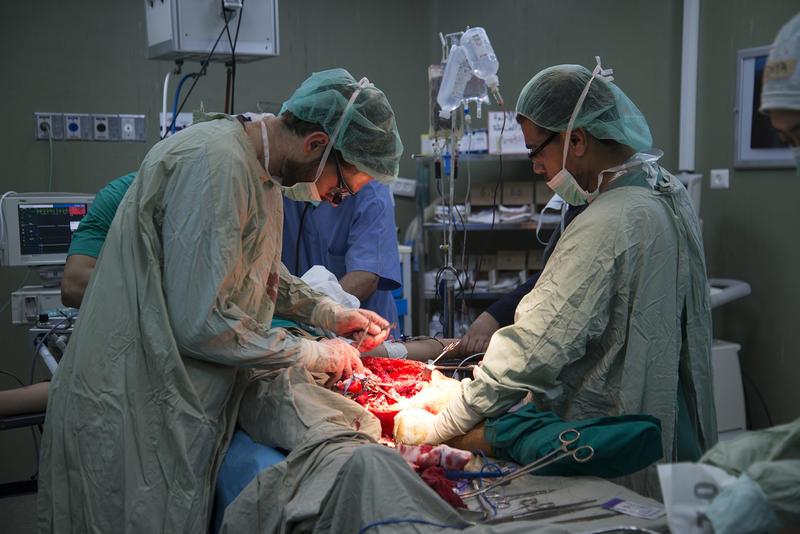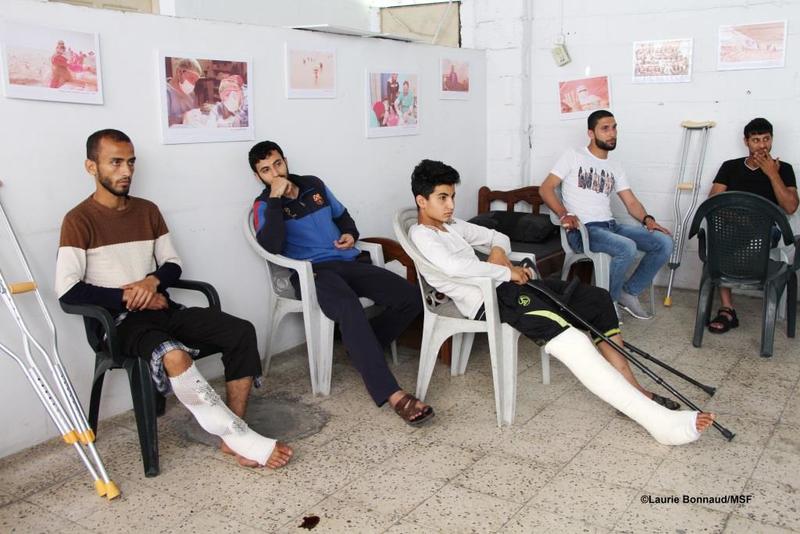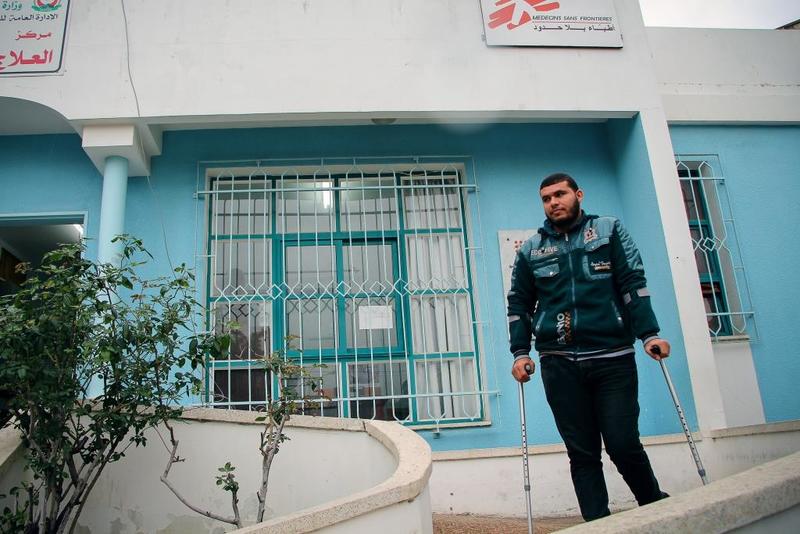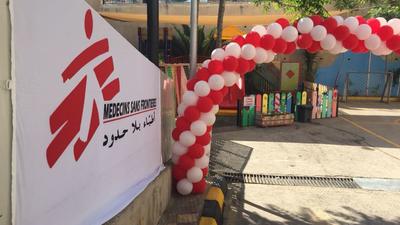What happened on 14th of May is unacceptable and inhuman. It is unbearable to witness such a massive number of unarmed people being shot in such a short time, The chaotic situation is comparable to what we observed in 2014 war.
MSF medical staff reports devastating injuries of a strong level of severity, which are extremely complex to treat and will leave long-term consequences for life to the majority of the patients. Read below few testimonials of our staff who witnessed the protests in Gaza.
Hamed, watchman in Gaza clinic
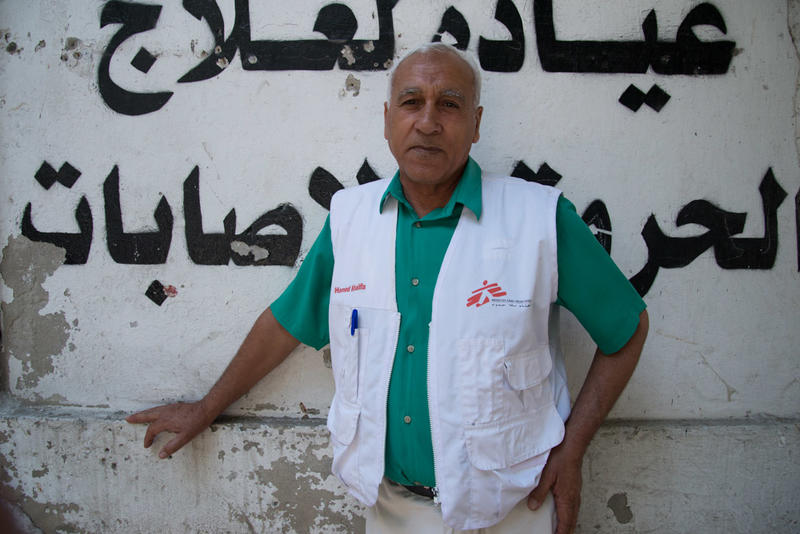
“We have received more than 500 patients injured by gunshots in our clinic in Gaza city since 30 March. The influx of wounded puts everybody under a lot of pressure, but we do our best to help our patients. We know that they are suffering a lot. I am a watchman, but since the violence started I have been carrying stretchers, helping people to get out of the ambulances, and even buying water for people if they are injured and can’t move. I am here to help; we are human and we are humanitarian workers.”
Lynn, orthopaedic surgeon
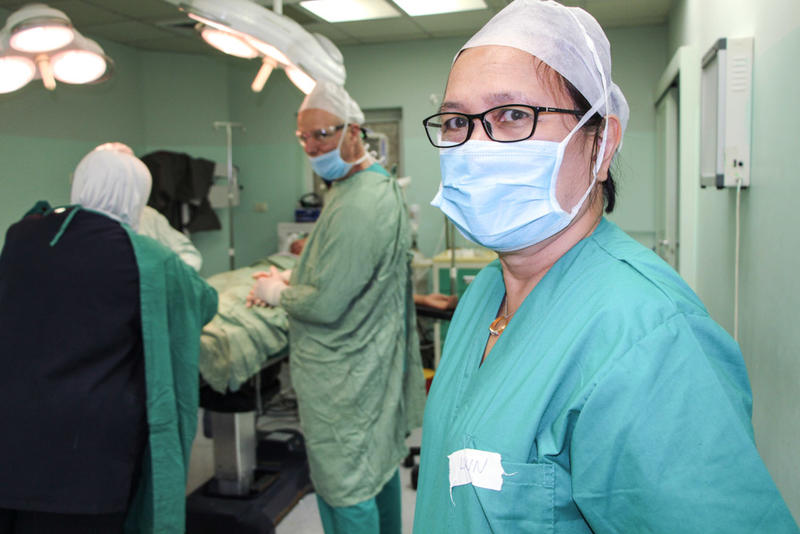
“Most of the patients we operate on either have shattered bones with big chunks of muscle, tendons and skin blown out, or soft tissue injuries with nerve damage and blood vessel injuries. The most critical patients have all of that. It will take a long time for people with these injuries to recover, not to mention the several surgeries they will have to undergo. Patients will need long physical rehabilitation to be able to walk again. Life will never be the same for them.”
Samar, pharmacist
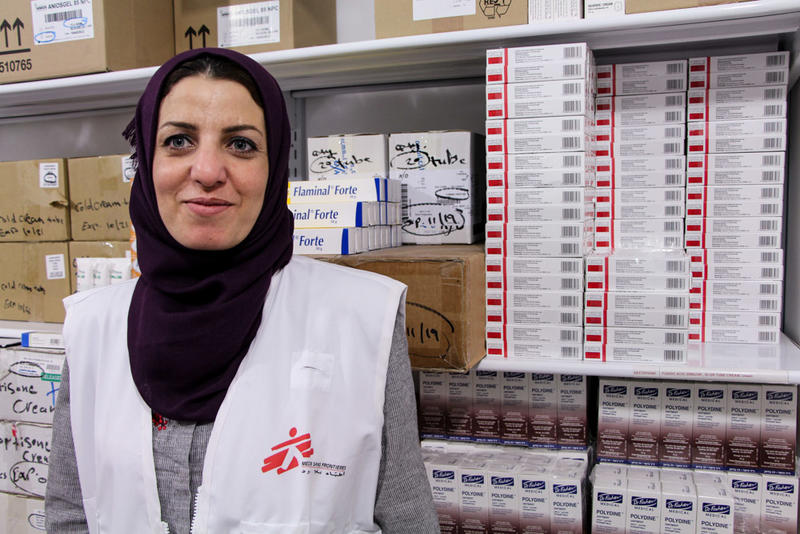
“As a pharmacist working with MSF, I’m supporting the emergency response assisting people in need and those affected by the recent violence. We rapidly scaled up to respond, donating drugs, medical disposables, surgical instruments and logistic supplies to several Ministry of Health hospitals in Gaza city. These facilities, despite their best efforts, are still facing severe shortages.”
Zaher, nurse
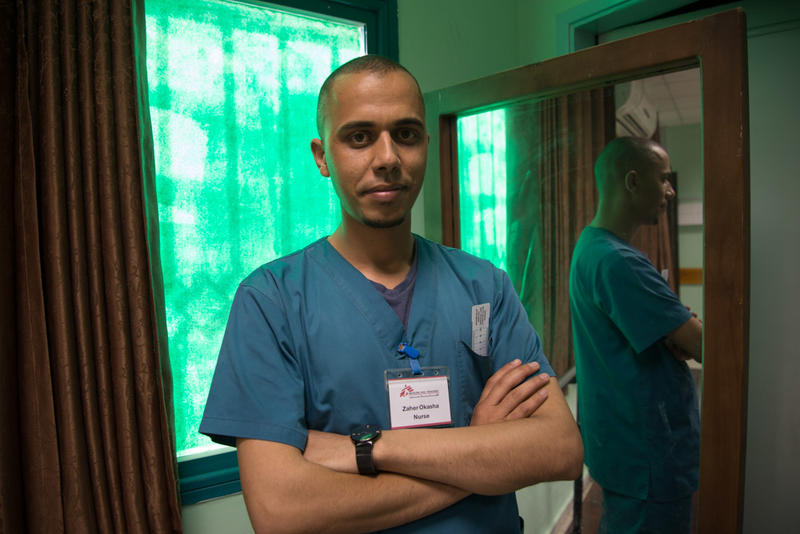
“In just two months, we received more than 1,200 patients injured by gunshots in our clinics. MSF made great efforts to manage the emergency response. Surgical teams were deployed, donations of medicines were made, and here in the clinic we have been working hard to provide our patients with the best quality care. But with so many patients to treat, and the injuries so severe, MSF has recruited an extra 30 nurses to cope with the influx of wounded.”
Abu Jasser, surgical team facilitator
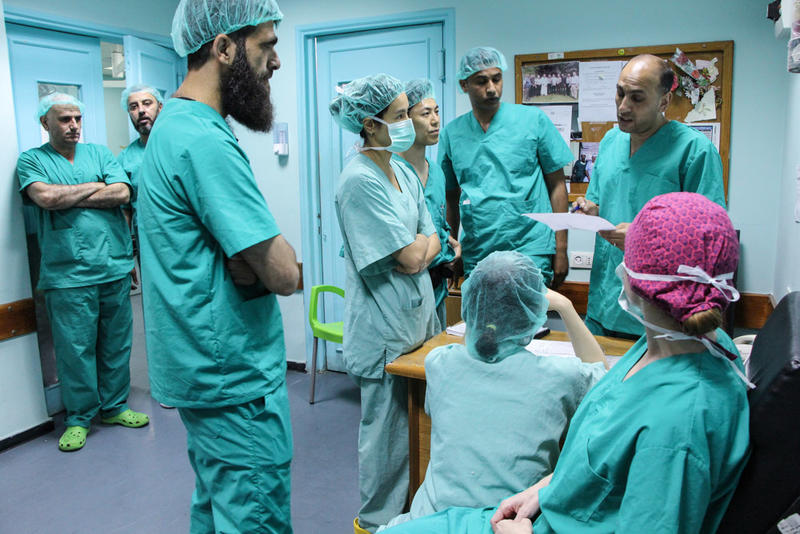
“The Ministry of Health requested MSF’s support to cope with the sudden increase of patients injured by gunshots. We have provided surgeons, nurses and anaesthesiologists. We are working hard to perform complex second surgeries and avoid infections; we provide skin grafts and reconstructive surgery. We also refer patients to MSF clinics for close follow-up care after their operations. We work closely with the local teams; we share experience, and do our best to support the healthcare system in this terrible situation.”
Regidor, operating theatre nurse
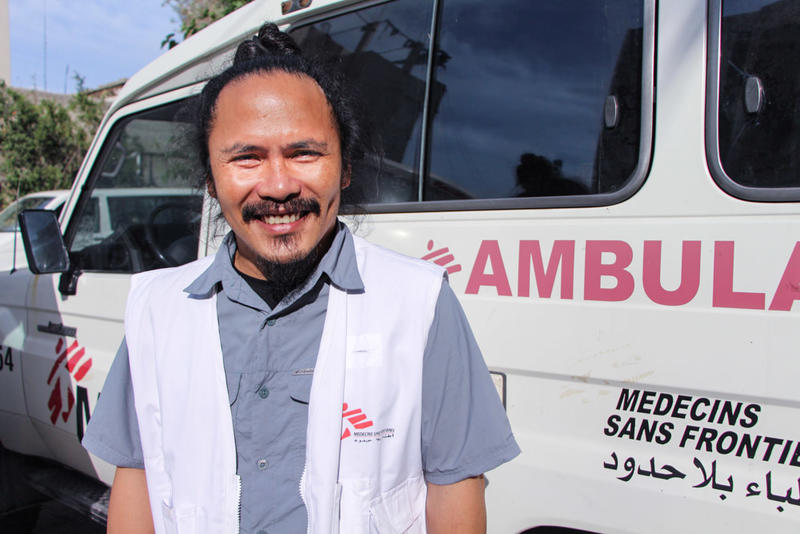
“There is a sentence in our MSF wound care handbook which I find very accurate; it says, ‘You need to treat the whole patient and not just the hole in the patient.’ What I’ve seen during my first few weeks working in north Gaza is that most of the people injured by gunshots are adolescent men. Because of the severity of their injuries, there is a high risk these young men will remain disabled for the rest of their lives if we don’t take good care of them.”



